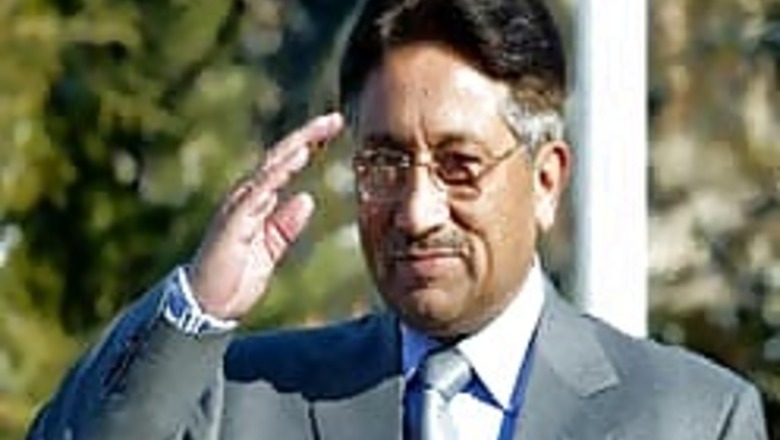
views
New Delhi: First he was intrigued and then surprised when he was called by Prime Minister Nawaz Sharif and heard that he has been appointed as Pakistan's new Army Chief.
Giving an insight into what transpired on October seven, 1998, Pakistan President Pervez Musharraf, in his book In the Line of Fire, said around 1930 hrs, IST he got a call that Sharif wanted to see him the same night.
Musharraf was aware that it was not normal for a Prime Minister to call a Lt General like that and at night when Army Chief Jahangir Karamat was available next door to sort out anything.
Sharif's military secretary, who telephoned him, insisted that he come in uniform and not to talk to the Army Chief.
Musharraf recalled that as he was entering Islamabad, he received a call from brigadier Ijaz Shah, his friend and ISI's detachment commander in Lahore. Shah congratulated Musharraf saying he was being made the new Army Chief.
"What nonsense are you talking? Karamat's term is not up. How can I become Chief?" Musharraf responded. Shah then told him that Karamat has resigned.
Karamat had paid the price for making some suggestions during a speech at the Naval Staff College about how to improve governance of the country and advocated setting up of a National Security Council.
Sharif had then through a Constitutional amendment taken away the power of President to dissolve the National Assembly and dismiss the government.
The Prime Minister had also armed himself with powers to appoint the three service chiefs and the chairman of the Joint Chiefs of Staff Committee.
"I remembered that the colour had drained from Lt General Ali Kuli's face. He was friendly with President Farooq Leghari, and it was more or less a foregone conclusion that he would be selected as the next chief," recounted Musharraf.
Musharraf then felt that despite the Constitutional amendment, the President still had to sign the appointment order and still had "some input in the matter".
PAGE_BREAK
A legal battle had ensued with the Prime Minister on the one side and the President and the Supreme Court Chief Justice on the other. Both sides dragged the Army Chief to arbitrate, recalls Musharraf.
Leghari tried to get the Chief Justice to rule that the Constitutional amendment was unconstitutional. This would have enabled him to dissolve the National Assembly and dismiss the government and the Prime Minister.
More light was thrown in this unsavory episode. Sharif convinced certain judges to take his side and they passed a resolution against their own Chief Justice.
Musharraf alleged that Sharif then got his "party goons" to storm the Supreme Court building while the court was in session."
"Their lordships had to hide in their chambers to avoid a thrashing, or worse," wrote Musharraf.
Karamat did not agree with Kuli's line that the Army must takeover the country and instead threw his weight behind the Prime Minister.
President Leghari decided to resign and the Chief Justice followed suit.
"I was in some turmoil as I entered the prime minister's office. He was sitting on a sofa and smiling a victorious smile. He told me that the chief of the army staff had resigned and that he had appointed me instead," recalled Musharraf, adding that he thanked the prime minister for reposing confidence in him.
He said that while pinning on his badges of rank, Sharif told him "one of the reasons why I have selected you is that you are the only lieutenant general who never approached me, directly or indirectly, for this job."
"I saluted the prime minister and left," Musharraf recounted.
















Comments
0 comment